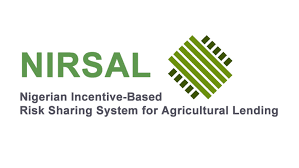Paragraph 1: NIRSAL’s Shift Towards Yield-Based Agricultural Insurance
Nigeria Incentive-Based Risk Sharing System for Agricultural Lending (NIRSAL) Plc, a prominent financial institution, is spearheading a transformative shift towards yield-based insurance within Nigeria’s agricultural sector. This strategic move aims to bolster economic growth by mitigating the risks inherent in agricultural production and encouraging greater investment in the sector. Traditional indemnity-based insurance, which primarily covers input costs, has proven insufficient to adequately protect farmers and lenders against potential losses, especially when loan repayment is considered. The transition to yield-based insurance, which focuses on insuring expected yields, promises a more comprehensive safety net for agricultural stakeholders.
Paragraph 2: Yield-Based Insurance and Microinsurance: A Two-Pronged Approach
NIRSAL’s approach involves collaborating with Polar Consulting to develop and implement yield-based insurance models. This partnership has already resulted in the rollout of these innovative insurance products through five insurance companies, signifying tangible progress in the initiative. Furthermore, NIRSAL recognizes the need to cater to the diverse needs of the agricultural landscape, particularly the lower segment of the market. To address this, they are actively exploring microinsurance options tailored to smallholder farmers, further expanding the reach and impact of agricultural insurance. These efforts aim to provide a more inclusive and accessible risk management framework for all agricultural practitioners.
Paragraph 3: Redesigning Insurance Products and Building Trust
Beyond the adoption of yield-based insurance, NIRSAL emphasizes the importance of redesigning insurance products to better suit the needs of farmers. This includes exploring flexible payment options, such as allowing farmers to pay premiums in installments, and incorporating credit-building mechanisms into insurance payment structures. These innovative approaches aim to enhance the accessibility and affordability of agricultural insurance, particularly for smallholder farmers with limited financial capacity. Moreover, NIRSAL recognizes the critical role of trust in fostering greater insurance uptake. They are actively working to strengthen trust within the agricultural insurance ecosystem, particularly through promoting private sector-driven self-regulation. This effort seeks to ensure greater transparency and accountability within the insurance industry, bolstering farmers’ confidence in the system.
Paragraph 4: The Need for Larger-Scale Farming in Nigeria
While acknowledging the importance of supporting smallholder farmers, NIRSAL also advocates for the growth of larger-scale farms in Nigeria. Baiyewu, during a panel discussion at the Meristem 2025 Annual Outlook Conference, highlighted the significant role larger farms play in boosting food production and driving agricultural exports. He argued that the development of larger farms, with their increased capacity for efficient resource utilization, quality control, and negotiation power, is essential for achieving sustainable agricultural growth and competing in the global market. This perspective suggests a shift towards a more diversified agricultural landscape, incorporating both smallholder and larger-scale farming operations, each contributing to the overall strength of the sector.
Paragraph 5: The Role of Insurance Brokers and Challenges in Agricultural Insurance
Insurance brokers play a crucial role in bridging the gap between insurance providers and agricultural stakeholders. Their expertise in navigating the complexities of insurance products and tailoring solutions to individual needs is essential for driving greater insurance penetration within the agricultural sector. However, challenges remain in fully realizing the potential of agricultural insurance. Bàbàtunde Oguntade, President and Chairman of the Nigerian Council of Registered Insurance Brokers, pointed to the reluctance of some brokers to engage with the Nigerian Agricultural Insurance Corporation (NAIC) due to subsidized premiums and reduced commission rates. This reluctance highlights the need to address the financial incentives for brokers to actively promote agricultural insurance products.
Paragraph 6: The Future of Agricultural Insurance in Nigeria
Despite these challenges, the outlook for agricultural insurance in Nigeria remains positive. The increasing awareness of the benefits of agricultural insurance, coupled with the development of innovative products like yield-based insurance and microinsurance, is expected to drive growth in the sector. Furthermore, the recognition of the need for larger-scale farming and the increasing focus on commercial agriculture are likely to further increase demand for comprehensive insurance solutions. Addressing issues such as broker incentives and building trust within the insurance ecosystem will be crucial for unlocking the full potential of agricultural insurance in Nigeria and supporting the sustainable growth of the agricultural sector. Past experiences, like the floods that impacted agribusiness and resulted in significant insurance claims, underscore the importance and growing relevance of agricultural insurance in mitigating risks and fostering resilience within the sector. As agricultural activities expand and intensify, the demand for effective and accessible insurance products is bound to rise, presenting both opportunities and challenges for the Nigerian insurance industry.


